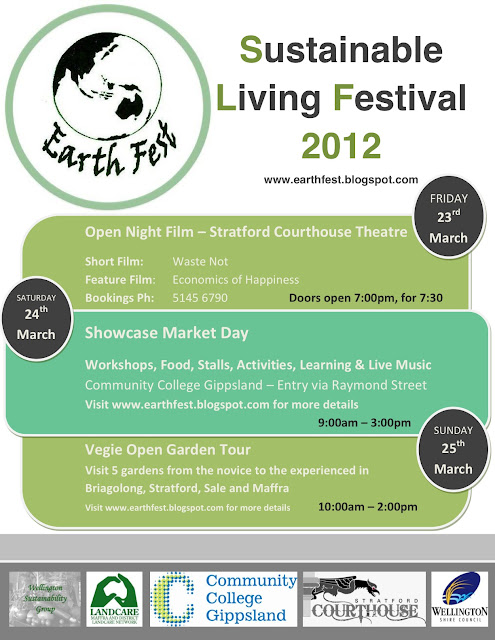At the Earth Fest Showcase Market Day we will be presenting a range of workshops around the Earth Fest 2012 theme: Celebrating our Sustainable Future.
Edith Maclean and her chickens will be there all day to strut their stuff, but at 11am, Edith will be sharing her knowledge about how to keep happy chickens.
Here is some information from Edith that was printed in February 2012 Green Magazine:
What started as
a short project along the way to a Master of Sustainability turned into an
eight year mission that ended with a more sustainable backyard chook.
I have taken
the best qualities from eight pure breeds and after generations of development,
thousands of hours of observation and scientific measurement I arrived at the
perfect chook designed for small gardens.
Selected for a
range of beneficial behaviours, these new designer chooks are less destructive
in the garden than many purebreds, preferring only light ground disturbance on
their endless quest for insects. The three-fold benefit to your garden is
aerated soil, turned mulch and chemical-free pest control. This shallow
scratching action, and other positive behaviours, is taught to chicks by good
mother hens.
Keeping a
small, low maintenance flock also raises your performance in the kitchen
sustainability stakes by converting vegetable peelings and leftovers into
nutrient rich fresh eggs.
Unlike your
compost heap, chooks present an effective recycling option that does gratefully
accept meat products and daily top-ups. Their manure can be added to compost
heaps between layers of green materials.
Sawdust or
straw from the bottom of nesting areas can also be shovelled directly into
compost. By the time you need to replace their bedding it is usually close to
the perfect 25:1 carbon/nitrogen ratio necessary for making great compost.
If you'd like to hear more of Edith's secrets, come along to Earth Fest and be part of a great family day out!

